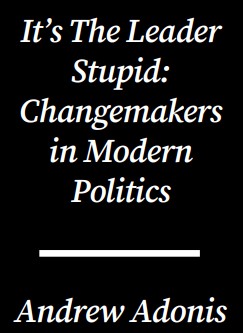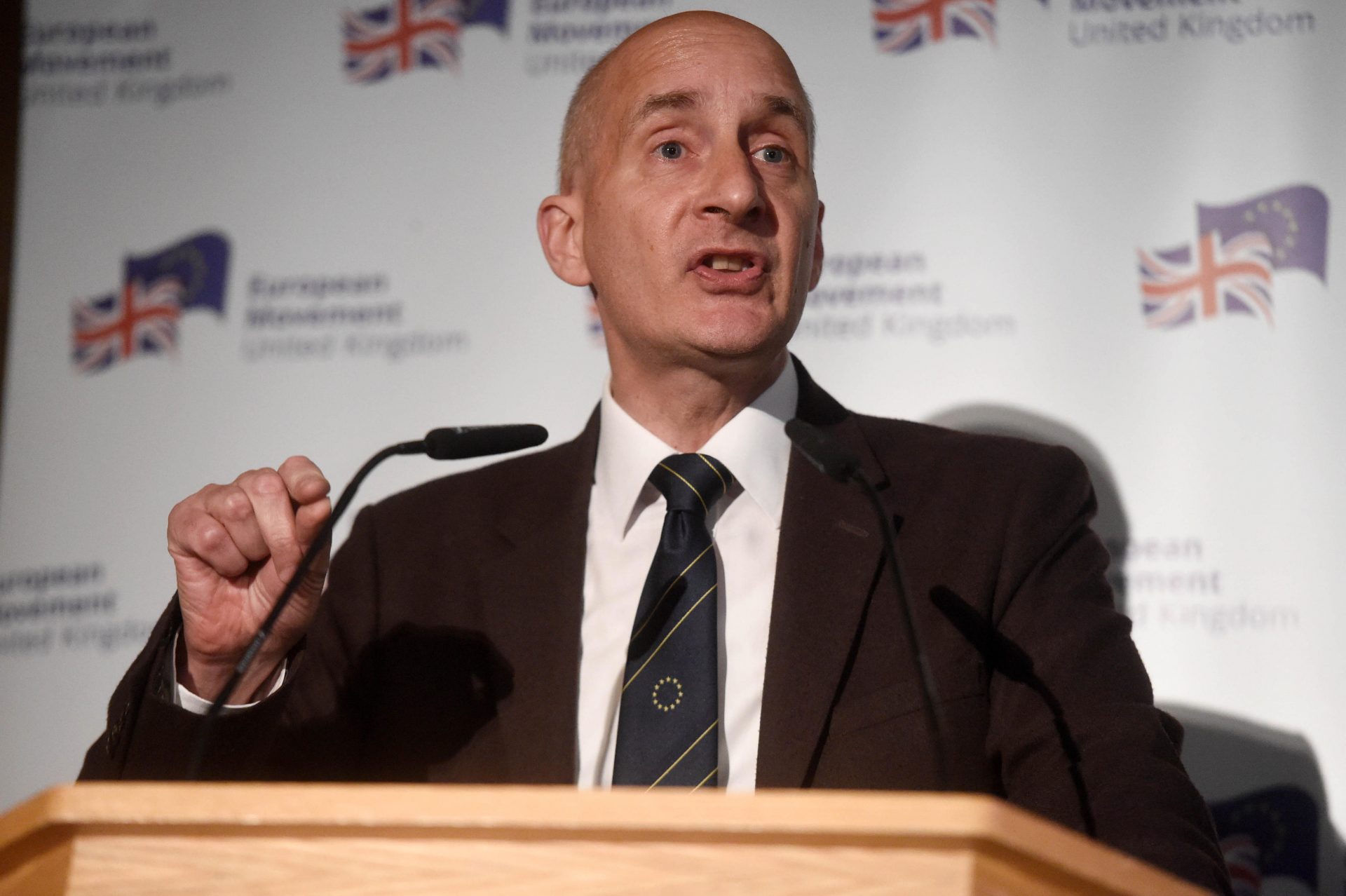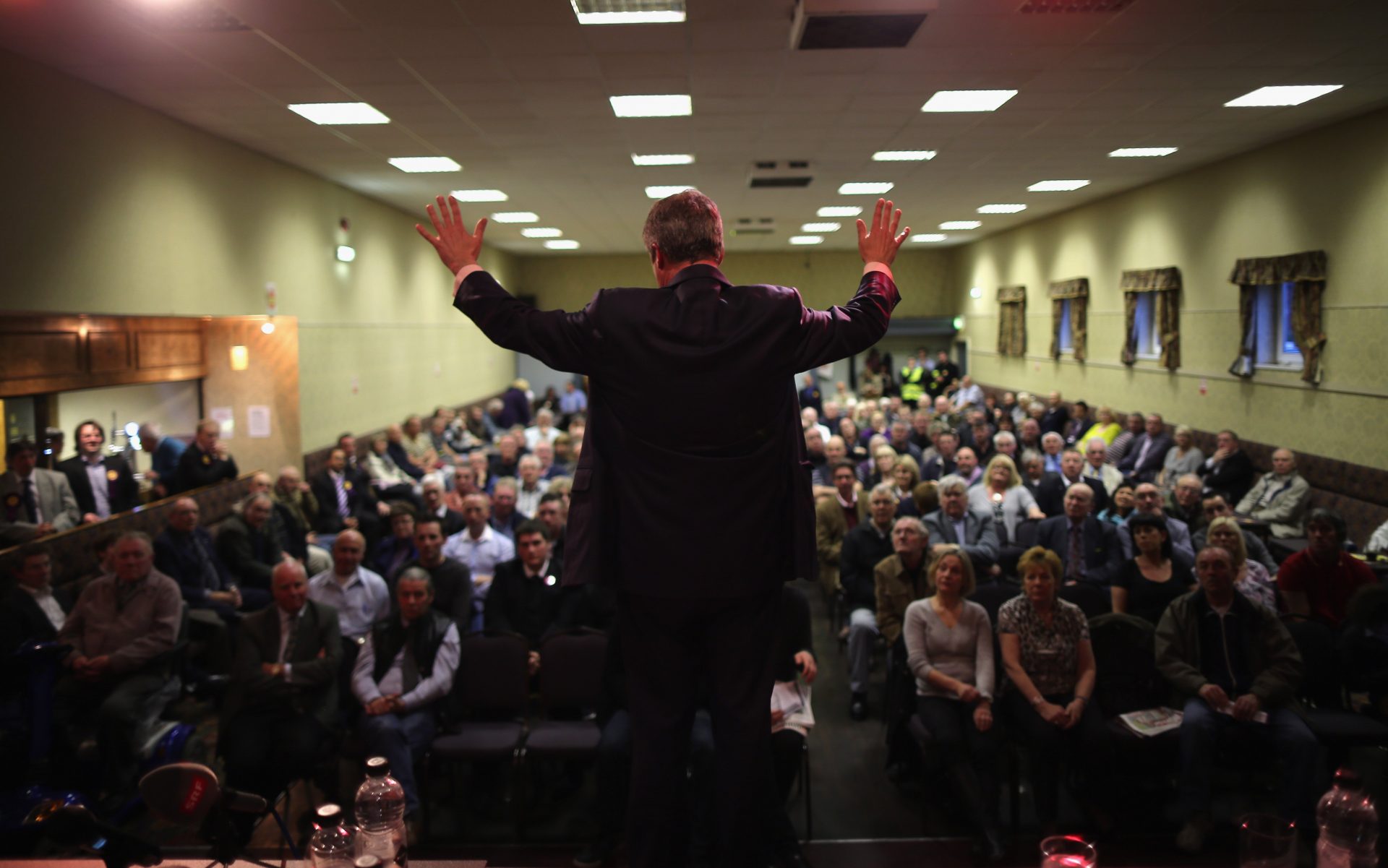Leaders matter most. Parties, policies and principles abound but leaders determine success or failure in politics. So argues Andrew Adonis in his insightful and engaging study of more than 20 leaders from across two centuries and three continents.
Anticipating the wearisome gripe of the academic purist who points out that Adonis covers five people who did not lead nations or parties – namely: Marx, Bevin, Grey, Heseltine and Von der Leyen – I retort that he views leadership as the discharge of a set of defined responsibilities and all five fit squarely into that category.
Adonis himself is that rare and under-priced bird in modern discourse: a conviction politician who is interested in, and writes persuasively about, figures both of similar, and of contrasting, views to his own. Deploying an unapologetically subjective methodology that combines raw leadership talent and “spirit of the times”, Adonis contends that, over and over again, the leader who exhibits both is the winner.
If the criteria for evaluating leaders is subjective, the selection of leaders is unashamedly personal. He casts his net wide, pronouncing upon an eclectic mix of figures from Gladstone and Marx to Lincoln and Roosevelt; from Biden and Modi to George III and Boris Johnson.
In doing so, Adonis captured and held my interest from the first page to the last. He writes with passion, excitement and understanding but not an ounce of pretension. I read the book in one sitting. Some chapters will linger long in the memory. Bevin v Stalin is a monumental tribute to the man dubbed by the author “Labour’s Churchill”. Bevin was egocentric, stubborn, irascible and even a contradiction: an avowed egalitarian who championed Empire and displayed naked anti-semitism. Yet, for all that, as Attlee’s foreign secretary, he sussed Stalin’s mendacity better than Churchill, Roosevelt or Truman.
Bevin worsted the Russian dictator, keeping him out of Western Europe, helping to create the Federal Republic of Germany and proving pivotal in establishing NATO – still the cornerstone of Western security more than 70 years later.
In assessing his one-time boss, Tony Blair, in fewer than 17 pages, Adonis is commendably succinct.
He highlights peace in Northern Ireland, devolution for Scotland and Wales, improved health and education services and the national minimum wage as the stellar successes but three other features stand out in his analysis.
First, he reminds us of the quality of patience in an aspirant leader. As he observes, “Blair was content to go along with the left orthodoxies of the day: he stood, in 1983, on a platform of leaving the EEC, and was a member of the Campaign for Nuclear Disarmament”.
Second, Adonis dismisses claims that any Labour leader would have won in 1997 and probably in 2001 and 2005 to boot. Blair’s prodigious endeavours in fashioning New Labour – moderate, attractive and unthreatening – were key, as was his charisma set against John Major, William Hague and Michael Howard.
Lastly, Adonis notes that Blair couldn’t deliver Britain into the euro but delivered her into the Iraq War. He speculates ruefully “what if ” Blair had achieved the former and eschewed the latter. Readers of The New European may concur.
I still think the UK was right to stay out of the euro and that Blair was right to conduct the war.
Adonis is laudatory about Lincoln and Roosevelt but perhaps more significant is his pithy panegyric of Lyndon Johnson. Drawing on Robert Caro, the fifth volume of whose biography of the Texan Machiavelli I eagerly await, Adonis emphasises that five days after JFK’s assassination, Johnson ignored his advisers’ counsel to not mention the subject of civil rights in his emergency address to Congress.
In a supreme act of leadership, Johnson instead declared: “No memorial oration or eulogy could more eloquently honour President Kennedy… than the earliest possible passage of the Civil Rights Bill for which he fought so long.”
Adonis deplores Farage’s crude demagogy but acknowledges the achievement of the then UKIP leader in driving Brexit. Farage browbeat and intimidated Cameron into accepting the need – there was none – for that referendum. The fence of previous Conservative opposition mounted, the heady brew of Farage’s simplistic messaging, the Murdoch/ Barclay brothers/Rothermere and Desmond media and Cameron’s complacency made Brexit a fact.
Farage is neither sophisticated nor wise. He fought me in my Buckingham constituency and my constituency tossed him aside.
But he has been a successful political leader in routing all of the major parties, which sensibly opposed the act of national self-harm we have inflicted upon ourselves.
When David Cameron resigned and Brexit became official Conservative policy, Theresa May became its nominal leader. The real leader was, and remains, Nigel Farage. That is the depth to which the party of Disraeli, Churchill and Macmillan has plumbed.
On Napoleon, Lloyd George, Margaret Thatcher and Michael Foot, Adonis is acute, discerning and fair-minded. He eviscerates the chameleon, François Mitterrand.
Every portrait is a joy to read as the simplicity of the Adonis prose style brings each character to life but if I could take only two to my desert island, they’d be those on Roy Jenkins and Boris Johnson.

Admirably transparent, Adonis declares his interest as a long-time friend of Jenkins, a hero to him. But it’s readily apparent to anyone within a 50-mile radius of the book that Adonis admires Jenkins beyond anyone he has known. That said, he makes Jenkins’ case in style.
To me, Jenkins’ achievement as home secretary in delivering the legalisation of homosexuality and abortion was phenomenal. Public opinion, particularly on homosexuality, was antipathetic.
Harold Wilson represented the strongly Catholic constituency of Huyton and did not want to get involved, but Jenkins, the consummate persuader, convinced the PM to let him pursue his goal through Private Members’ bills.
Although many MPs favoured reform on both issues, many supported one and not the other. Jenkins adroitly nurtured his colleagues to gain majorities on both fronts, meriting the Adonis verdict that his achievement was “one of the most remarkable acts of modern British statecraft.”
Even though I’m new to the Labour Party, I can nevertheless understand the vast reservoir of resentment many Labour folk harbour towards Jenkins for turning his back on the party, splitting the left and helping Margaret Thatcher back into office.
In truth, she would have won in 1983 anyway, and the Jenkins brainchild, the SDP, was promptly vanquished. But losing a battle was the prelude to winning the war to make Labour electable again.
The annihilations of 1983 and 1987 forced Labour to examine what it needed to do to win and deliver an alternative to endless Conservatism.
I do not wish to spoil readers’ appetite for the chapter on Johnson. Suffice it to say that Adonis loathes his politics, his narcissism, his unscrupulousness and his sense of entitlement, not to mention the racism in this ugly Johnson vignette: “Cancel the guilt trip. Africa is a mess, but it is not a blot on our conscience. The problem is not that we were once in charge, but that we are not in charge any more.”
But he does not underestimate the PM’s capacity for survival. Every week, I meet people who speak hopefully of his removal within months. Don’t bet on it, is the Adonis message.
Reading an Adonis book is analogous to eating a Chinese meal. A couple of hours later, I am hungry for more. So I risk abusing my position as reviewer by making an appeal to the noble Lord.
My spies tell me that he is hard at work on a biography of Tony Blair – and that will be well worth the wait.
However, what about a new biography of Harold Wilson? Or Denis Healey? Or Barbara Castle?
I am tempted to issue an Order. “Get on with it, man.”



